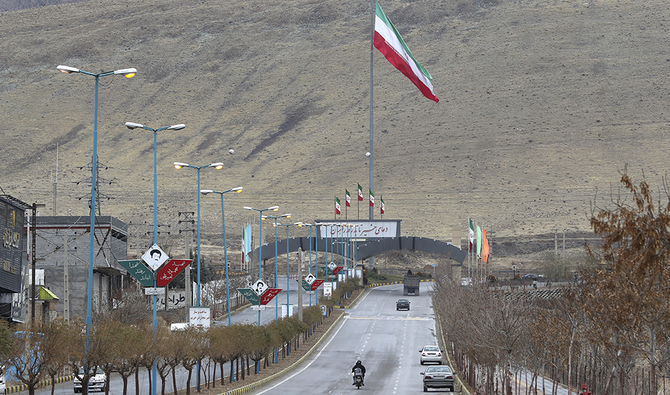BERLIN: World powers that are part of a landmark 2015 nuclear deal with Iran have urged Tehran to roll back violations of the accord and return to full compliance, during a virtual meeting in Vienna, a German official said.
The meeting came as the signatories to the agreement — Germany, France, Britain, China and Russia — continue to try and keep it from collapsing after the unilateral withdrawal of the US in 2018.
The three European powers have expressed hope that with the change of administrations in Washington, the US could be brought back into the deal, whose goal is to prevent Iran from developing a nuclear bomb.
President-elect Joe Biden has said he hopes to return the US to the deal, which was negotiated while he was vice president.
But complicating that, Iran is now in violation of most major restrictions set out in the agreement, including the amount of enriched uranium it is allowed to stockpile and the purity to which it is allowed to enrich uranium.
German Foreign Ministry spokeswoman Maria Adebahr said Wednesday’s meeting of political directors and deputy foreign ministers would assess implementation of the nuclear accord, and that the European countries would demand Iran return to full compliance.
Iran has said it is no longer obliged to follow the restrictions, arguing that the US first violated the agreement, known as the Joint Comprehensive Plan or Action, or JCPOA, when President Donald Trump pulled out of the deal and imposed crippling economic sanctions on Iran.
The Russian delegate to the JCPOA, Mikhail Ulyanov, tweeted after the meeting that “the participants confirmed their firm commitment to the nuclear deal, as well as readiness to undertake intensive diplomatic efforts to ensure its full implementation.”
The deal promises Iran economic incentives in exchange for curbs on its nuclear program, but with the reinstatement of American sanctions, the other nations have been struggling to provide Iran the assistance it seeks.
Despite Iran’s violations, the International Atomic Energy Agency has reported that Tehran continues to give inspectors full access to its nuclear sites — a key reason the JCPOA member nations say it is worth preserving.
Delegates to Wednesday’s meeting agreed to hold further “informal” ministerial-level talks on Dec. 21.
In another development, an independent Canadian report published this week into a Kiev-bound passenger plane mistakenly shot down by Iran in January said Tehran should not be allowed to investigate itself and called for changes to civil aviation rules.
“The party responsible for the situation is investigating itself, largely in secret. That does not inspire confidence or trust,” said the report, written by one of Prime Minister Justin Trudeau’s former ministers, Ralph Goodale, the government’s special counsel into the tragedy.
Ukraine International Airlines Flight 752 crashed shortly after taking off from the Iranian capital’s main airport on Jan. 8, killing all 176 people on board, 85 of whom were Canadian citizens or permanent residents.
Iran admitted days later that its forces accidentally shot down the plane after firing two missiles amid heightened US-Iran tensions.
“Many of the key details of this horrific event remain unknown,” the report said, noting in particular why Iranian airspace had remained open the night of the tragedy.
“Iran bears responsibility for that because — at least thus far — it has not conducted its investigations (safety, criminal or otherwise) in a truly independent, objective and transparent manner,” the report continued.
In early November, the International Civil Aviation Organization (ICAO) called on Iran to “expedite the accident investigation” and publish its final findings on the crash.
Canada had said in early October that it would set up its own team of investigators to collect and analyze available information on the crash.
Goodale called for a review of current international standards that entrust the investigation of an aviation crash to the country where the accident occurred.
“In the case of a military shoot-down, that means the very government involved in causing the disaster (Iran in this case) is in complete control of the safety investigation, obvious conflicts of interest notwithstanding, with few safeguards to ensure independence, impartiality or legitimacy,” the report said.
“This undermines the investigation’s credibility and enables a sense of impunity in avoiding essential questions.”
Trudeau welcomed the report and called on Iran to “answer comprehensively, with supporting evidence” the questions the document raises.
















